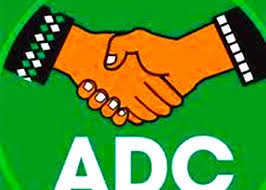BENIN CITY – The global corruption watchdog, Transparency International, has ranked Nigeria as 39th in its 2014 corruption index.
The Corruption Perception 2014 Index released in Berlin yesterday, a copy of which was obtained from their website by The NIGERIAN OBSERVER revealed that Nigeria scored 27 out of a maximum 100 marks to clinch the 136th position out of the 175 countries ranked. The 2014 Corruption Perception Index measures the perceived level of public sector corruption in 175 countries and territories.
North Korea and Somalia were ranked as the most corrupt nations of the world, scoring 8 each. Interestingly, Nigeria, Cameroun, Kyrgyzstan, Iran, Lebanon and Russia are on the same position in this year’s index with all six countries scoring 27 out of 100 marks.
Top performers in the ranking has Denmark as the least corrupt nation in the world with a CPI score of 92. New Zealand scored 91, Finland 89 and Sweden 87 to clinch 2nd, 3rd, and 4th least corrupt countries respectively.
Botswana maintained its lead as the least corrupt country in Africa placing 31st of the 175 countries ranked scoring 63 along with Portugal, Cyprus and Porte Rico. Cape Verde is placed 42nd scoring 57 as the second best performing African country. Ghana scoring 48 along with Croatia placed 61st of the countries surveyed.
Singapore dropped two places to seventh in the CPI, scoring 84 points – down from 86 points last year – to finish behind Norway and Switzerland. The index score relates to perceptions of the degree of corruption as seen by country analysts and business people, and ranges from zero, which is highly corrupt, to 100, which is very clean.
This year’s rating for Nigeria seems a little bit of an improvement from previous years. In the group’s Corruption Perceptions Index for 2013, Nigeria ranked 144th, out of 177 nations in the world, scoring 25 points out of a possible 100 points. In 2012 Nigeria scored 27 out of a maximum 100 marks to clinch the 139th position out of the 176 countries surveyed that year.
Corruption remains pervasive in Nigeria, an oil-rich nation currently suffering from the global oil price slide. The government recently announced a set of austerity measures to safeguard the economy from imminent collapse but citizens have continued to blame the nation’s underdevelopment on widespread corruption in high places.

President Goodluck Ebele Jonathan,

